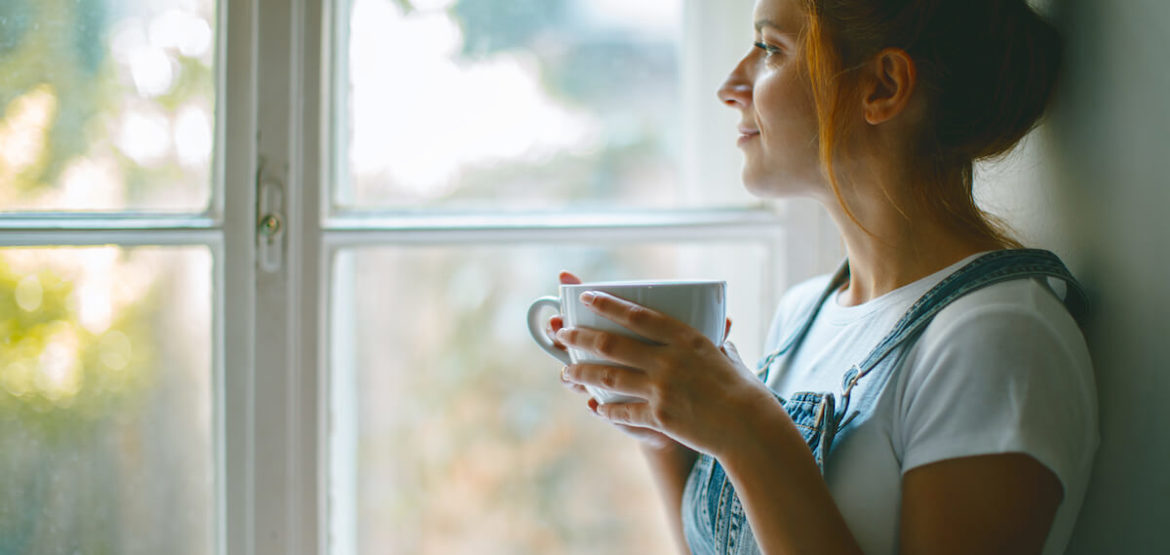Recovering after Covid-19
Dr Fiona Sim explains why resetting the dial to low risk drinking, or none at all, is important to your recovery from coronavirus.

So you have had Covid-19 and are at home, hopefully feeling better than you have done for a while. You might have had a mild dose of the virus or you may have been seriously ill with a stay in hospital, perhaps even a spell in Intensive Care. So the impact of coronavirus infection on you and your family could be very different depending on how you have experienced it.
The great majority of people who get ill with Covid-19 will have mild infection, commonly noticing a dry cough, high fever or loss of sense of smell or taste. You might also have aching joints, diarrhoea or vomiting or other flu-like symptoms. In most people, those symptoms only last for a few days, hence the government advice to stay home for seven days initially, but longer if your symptoms persist. It is highly likely that you'll feel tired and weak as part of the Covid-19 illness.
While you are ill with Covid-19, you probably won't feel like having an alcoholic drink. If you have a fever and cough or cannot taste much, chances are that you have little appetite for food or drink. But it is essential that you drink plenty of water to avoid dehydration and this is especially important with Covid-19.
When you start to recover from the illness, do pace yourself physically. You may find you have much less energy than normal, which might be frustrating or even a bit frightening, but our bodies are good at holding us back when they need that time to recover. So, as soon as you are ready, a gentle stroll, gradually building up to a more vigorous walk, makes sense, to allow your body the time it needs to return to normal.
If you have been very unwell with Covid-19, you may have lost weight and muscle mass, which accounts in part to the fatigue and weakness you might feel. Healthy nutrition is really important as you recover and, in case it isn't obvious, healthy nutrition does not include alcohol.
You might be tempted to have a drink before bed to help you to sleep, but as you probably know alcohol interferes with our normal sleep pattern, so although you might fall asleep quickly, you'll miss out on a good night's sleep and be even more weary the next day.
If you do feel like having a drink, then if you are at home making a good recovery and have no other conditions that make alcohol extra hazardous for you, it is OK as long as you stay within the UK Chief Medical Officers' low risk drinking guidelines for men and women, of not more than 14 Units spread across the week, and have at least three drink-free days each week.
For the small minority of people who have been really sick with coronavirus and, particularly in people who have needed admission to Intensive Care, some are describing vivid dreams or recalling traumatic events that continue to affect their wellbeing. Turning to alcohol to block out those thoughts won't help. If you are affected by them, please contact your GP practice for advice about accessing specialist support for your mental health or you can access several online support services that have been set up to help people come through the many types of stress caused by the pandemic and are often free to access.
It is worth sparing a thought for family members of someone who has been very ill with Covid-19. They might have used alcohol to cope with their anxiety and now it is time to step down to a safer drinking level.
So whether you have had Covid or someone close to you has been ill with it, now is the time to think carefully about staying off alcohol if you have developed a healthy habit of not drinking, or to cut down to a safer level if your drinking has been creeping up after illness or during lockdown.
There is no need to be harsh on yourself: this is a really tough time for everyone. But please be kind to yourself and those you care about, by resetting the dial to low risk drinking or none at all.
You may find that using freely available sources of help, such as the Drinkaware app or the Drinking Check quiz, help you on your way to a healthier relationship with alcohol.
Dr Fiona Sim OBE
Senior Clinical Adviser, NHS England (Central Midlands), Visiting professor – University of Bedfordshire, Joint Editor in Chief of Public Health journal, Former NHS GP, Awarded an OBE in 2015 for services to Public Health.